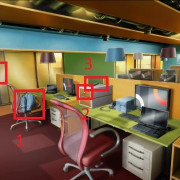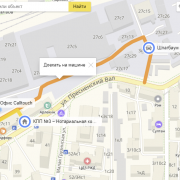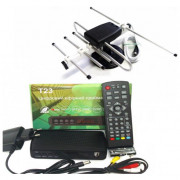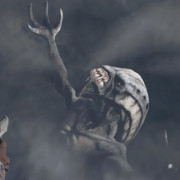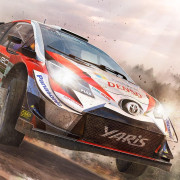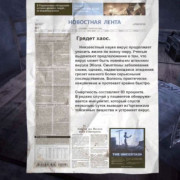Builder
Содержание:
- Kill Commands
- Citizens Commands
- Additional Information
- Scanning a New Structure
- Идеи для ключевых разделов колонии[]
- Building A Hut/Schematic
- Рабочие:
- Мысли на будущее[]
- Quick Walkthrough
- Custom Hut Filenames
- Tips on Building
- Colony Commands
- University GUI
- Crafter Recipes
- Местоположение[]
- Настройка[]
- Строительство[]
- Detailed Walkthrough
Kill Commands
| Command | Command Description |
|---|---|
| Default permission level: OP | Kills all raiders (barbarians, pirates, vikings, or egyptian raiders) inside all colonies.Example: |
| Default permission level: OP | Kills all animals (peaceful mobs) inside all colonies.Example: |
| Default permission level: OP | Kills all monsters (hostile mobs) inside all colonies.Example: |
| Default permission level: OP | Kills all chickens inside all colonies.Example: |
| Default permission level: OP | Kills all cows inside all colonies.Example: |
| Default permission level: OP | Kills all pigs inside all colonies.Example: |
| Default permission level: OP | Kills all sheep inside all colonies.Example: |
Citizens Commands
| Command | Command Description |
|---|---|
| Default permission level: ALL | Gives basic information about a specified citizen in a colony such as their ID and name.Example: |
| Default permission level: ALL | Kills a specified citizen in a colony.Example: |
| Default permission level: ALL | Lists all citizens in a colony with each citizen’s ID and name (9 results per page).Examples: |
| Default permission level: All | Reloads a specified citizen in a colony.Example: |
| Default permission level: ALL | Spawns a new citizen in a colony.Example: |
| Default permission level: ALL | Teleports a specified citizen to a given location.Example: |
| Default permission level: ALL | Tells a specified citizen to walk to a given location.Example: |
Additional Information
How to override some built-in schematics?
Simply create a schematic file with the same style/name. For instance, to override the Builder’s Hut wooden level 1, create a schematic file name called wooden/builder1.blueprint.
How to use custom huts?
The custom huts need to be copied in the schematics folder. Once copied, you can start your singleplayer or multiplayer game as usual. You should see them in the build tool (if you have the hut block in your inventory).
How to allow my players to use their scanned decoration schematics on my server?
Edit the Structurize configuration file at and set allowPlayerSchematics to true. This allows the player to use their own decorations. It is not possible for the player to use their own huts’ schematics. You can also limit the number of players’ schematics at any given time by editing maxCachedSchematics (default is 100). When the limit is reached, the server will start deleting unused schematics.
How to disable built-in schematics completely?
Edit the Structurize configuration file at and set ignoreSchematicsFromJar to true. Be aware: things will break if some huts’ schematics are missing.
How to create upgradable decoration schematics?
Add the deco controller somewhere in the schematic with the name of the schematic, where you’ll put it in the file directory, and its level. Make sure to actually put the decoration in that file path, but only after scanning — don’t include the path in the scan name.

Scanning a New Structure
Once you have a structure or area you want to scan to have your Builder build, you need to determine the exact area that needs to be scanned.

Take your Scan Tool and left-click the lowest left block of the area and then place a block (it can be a placeholder block in the top right corner and right-click on it.


Then click in the air to see the entire structure.

Once you have the full area set, you can press Escape and the white outline of the scan area will stay in place. Go around it to double-check that everything you want is in the scan area. When you are ready, you can right-click in the air again to get the GUI to display where you can enter your scan name. Then press the green checkmark to save the scan.
Scans are saved in
Once the scans are saved, they need to be moved to the if they are a .
Идеи для ключевых разделов колонии[]
Дом
Базовый дом 5x5x3 (не включая пол) с доступом на крышу. Как Вам должно быть известно, в доме обязательно должны быть верстак, печь (желательно две), сундуки для хранения вещей (лучше отвести для этой цели подвал), освещение, рекомендуется ещё поставить кровать. Со временем можно добавить ещё этажи по усмотрению.
Фермы
Создавайте различные фермы: пшеничные для изготовления хлеба и кормления овец и коров, куриц для дополнительной еды, яиц и получения перьев для изготовления стрел (между прочим, гравий поставляет кремень, необходимый для стрел), тыквы для светильников Джека и тыквенных пирогов, арбузы и какао-бобы для разнообразия пищи, дерево для инструментов.
Шахты
Шахта предполагает расширение вниз из Вашего подвала. Это делает более лёгким перенос добытых полезных ископаемых прямиком в Ваш склад. Если Вы живёте в пустыне, то просто поставьте шахту там, где есть камень/песчаник.
Хранилище
Хранилище — это большая комната, в которой стоит много сундуков. Размер около 5x6x4, материал должен быть лучше, чем дерево, неплохо подойдёт для этой цели камень (он прочнее и не горит). Сундуки могут открываться, если сверху стоит любой прозрачный блок, в эту категорию попадают и другие сундуки. А потому можно создавать вертикальные ряды сундуков. Таблички с надписями вроде «Инструменты», «Еда» и т. д. помогут Вам организовать своё хранилище и ускорить поиск необходимых предметов. Рекомендуется строить хранилище в центре колонии, чтобы можно было иметь наиболее быстрый доступ к нему из любой точки колонии, где Вы можете быть. Разумеется, склад должен быть хорошо защищён, прежде всего от криперов, так как они могут уничтожить Ваши сбережения. Также удобно хранить всё в бочках — их можно вмонтировать в стены и пол, и им не нужен прозрачный блок сверху для открытия, что открывает простор для иной организации хранения. А сундуки лучше использовать сдвоенными, если это необходимо, бочки ведь не объединить. Можно сочетать сундуки и бочки — сундуки поставить на пол, а бочки вмуровать в стену, выставив их в ряд, очень удобно.
Дополнительно
- Центр переработки — комната с большим количеством печей, полезно для массовой плавки предметов, например полутора десятка стопок булыжника в камень. Иногда полезно делать плавильные печи и коптильни в зависимости от Ваших потребностей.
- Ферма кактусов.
- Дополнительные дела, указанные в списке дел выше.
- Рыбацкая гавань с лодками, сундук для удочек и хранения выловленной рыбы и печь для её жарки.
- Конюшня для лошадей.
- Полуавтоматические и автоматические фермы мобов.
Building A Hut/Schematic
Before you build any building, you need to build the Builder’s Hut. If the Builder’s Hut isn’t built, the Builder cannot build any other building.
Buildings are constructed after the hut block/schematic is placed using the Building Tool and the green checkmark clicked. If it is a hut, you must right-click on the hut block, click Build Options, and then click Build Building. Only then will a build request be created (indicated in chat). An available Builder will accept the request (also noted in chat), and head off to clear the land and start building. They will stop building if they run out of materials and will then head back to their hut and request more.
Рабочие:
Как мы уже упоминали ранее, большинство зданий Минколоний имеют функцию укрытия работников разной природы. Здесь граждане не будут работать в дождливую погоду.
Уровень квалификации работников:
Была создана система для повышения квалификации работников. Уровень их дома — это то, что ограничивает уровень, которого они могут достичь. Каждый раз, когда вы увеличиваете уровень их ДОМА, предел максимального уровня работника будет удваиваться по сравнению с предыдущим пределом. В настоящее время предел рабочего уровня составляет 100 (конечно, после того, как вы выполнили уровень сборки 5). Уровень их работы здания определяет скорость, с которой они прогрессируют.
| Уровень здания | Максимальный рабочий уровень |
|---|---|
| 2 | |
| 1 | 4 |
| 2 | 8 |
| 3 | 16 |
| 4 | 32 |
| 5 | 100 |
Уровни инструментов / оружия:
Существует система уровней для типов инструментов и оружия, которые рабочие могут использовать в зависимости от уровня в рабочем здании. Уровень их строительства — это то, что налагает ограничение на «уровень инструмента / оружия», который может использовать работник. Каждый раз, когда вы поднимаете уровень здания, уровень инструмента / оружия, который рабочий может использовать, увеличивается.
| Уровень здания | Уровень инструмента / оружия | Уровень материала |
|---|---|---|
| Дерево или золото (+0 очарование) | Каменный уровень | |
| 1 | Чары на камень + 0 (или чары на дерево / золото + 1) | Уровень железа |
| 2 | Железо + 0 чар (или дерево / золото + 2 чар или камень + 1 чар) | Алмазный уровень |
| 3 | Алмаз + 0 чар (или дерево / золото + 3 чар, или камень + 2 чар, или железо + 1 чар) | Обсидиановый уровень |
| 4 | Все инструменты + 0 чар (или дерево / золото + 4 чар, или камень + 3 чар, или железо + 2 чар, или алмаз + 1 чар) | Уровень кобальта |
| 5 | Все инструменты + неограниченные чары | Любой уровень майнинга |
Луки / Уровни удочки:
Как и инструменты / оружие, тип луков и удочек, которые могут использовать рабочие, зависит от уровня их строения. Вот сводная таблица:
| Уровень здания | Колдовство |
|---|---|
| + o чары | |
| 1 | + o чары |
| 2 | + 1 чары |
| 3 | + 2 чар |
| 4 | + 3 чар |
| 5 | неограниченный |
Охранная броня:
Чтобы определить тип брони, которую могут использовать охранники, вы должны повысить уровень их строения, а охранник — повысить уровень.
| Тип прихватки | Уровень охраны | Уровень башни |
|---|---|---|
| кожа | 0 — 20 | 1 — 3 |
| золото | 0 — 20 | 1 — 4 |
| цепь | 0 — 20 | 2 — 5 |
| железо | 5 — 30 | 3 — 5 |
| бриллиант | 15 — 99 | 4 — 5 |
Черты характера:
У каждого работника есть черты, которые им нужно улучшить, чтобы выровнять.При нажатии на кнопку «Аренда», вы увидите список доступных работников с их лучшими функциями. Если линия зеленая, это ее основная линия, а желтая — ее дополнительная линия. Это позволяет вам наилучшим образом выбрать своего работника.
Мысли на будущее[]
В будущем можно будет возвести дополнительные сооружения.
Линия коммуникации
По существу, это прокладка рельс по пути, который вы проложили, чтобы добраться до колонии. Железная дорога позволит транспортировать вещи (посредством вагонеток с сундуками), мобов и себя самого. Прокладывайте маршрут только если колония будет постоянной. Осветите дорогу, чтобы монстры не появлялись рядом с вами (особую опасность представляют собой криперы, способные бескомпромиссно прервать линию коммуникации). На заметку: монстры не могут спауниться на рельсах.
Туннель
Довольно скучный вид линии коммуникации, однако безопасный (если освещения достаточно). Вообще, туннель довольно легко сделать, достаточно копать его размером шириной в блок и в два в высоту, это если копать под землёй. Ежели вы хотите построить туннель на поверхности, то вам придётся тратить по 5 блоков на каждый метр дороги (4 по бокам и один сверху).
Совершенствование
Если Ваша колония играет большую роль достаточно долгое время, Вы её часто посещаете либо уже живёте там, то почему бы не усовершенствовать её? Колония может стать вашей второй базой, и, возможно, основной. Создайте все удобства для хорошей жизни!
Quick Walkthrough
Before you get started on your new colony, you should find your perfect location. You need a large enough area for a full city-at least 8×8 chunks, and decently flat.
You should also gather as many resources as you can-wood, as well as cobble, coal, iron, flowers, string, leather, wool, saplings, and food.
Step 1: Supply Camp/Supply Ship
Once you have chosen a location for your colony, you must place a Supply Ship or Supply Camp. You can only place one of these per world. The Supply Camp/Ship gives you the Town Hall block you need to officially start your colony. They also have some other supplies you may need during the building of your colony. Once you have the Town Hall block and the build tool, the remaining camp/ship is just decoration. You can leave it or tear it down.
Step 2: Town Hall
The Town Hall block is what actually creates the colony. It also functions as the center of it. This is where you start using the build tool to place buildings. Using the build tool ensures you can see exactly where the building will be, which direction it will face, and if it is at the right Y level (some buildings need to be raised to the correct Y level).
Once the Town Hall block is placed, you will start receiving your initial 4 citizens.
Step 3: Builder
Before anything can be built, you need a Builder. The Builder must build their own Builder’s Hut before building any other huts, and they cannot build or upgrade a hut to a higher level than their own hut level.
Step 4: Tavern
Your colonists will need a place to sleep and a house, so it is recommended to build a Tavern next. The Tavern also allows visitors to come to your colony, and you can recruit them to stay as citizens.
Step 5: Food
The next major thing you need for your colony is food. The fastest way to get food is to build a Fisher’s Hut. You could build a Farm or one of the animal herders, but a Fisher is faster. Building a Restaurant may also be advisable if you don’t want to feed your colonists (or cook their food) by hand.
Step 6: Forester
If your style is wood, it’s recommended to build a Forester’s Hut next. That way your new Forester can start gathering wood for your next builds and for tools and other items.
Step 8: Warehouse and courier
At this point, you might be tired of bringing all of the resources to the Builder and taking them from the Fisher, Forester, Miner, etc. You also might want to store items in one place. Well, the Warehouse and Courier’s Hut are the solution you are looking for! Couriers transport items between the Warehouse and all of the workplaces.
Step 9: Rest of the Colony
This is where you need to decide what you need next, based on how you play and what your colony needs. But you have several things to look at. Once you get seven citizens you can get attacked by raiders and you may want to build a Guard Tower, or you may get a sick citizen and want to build a Hospital, or you may decide you want a Sawmill to make the needed items for a worker. Or you may just want to have a specific worker, or you found a great place for a certain hut. You decide how your colony will grow!
Custom Hut Filenames
Here is a full list, up-to-date as of 20 January 2021, of the building names. Please note that capitalization matters.
| Level 1 | Level 2 | Level 3 | Level 4 | Level 5 |
|---|---|---|---|---|
| archery1 | archery2 | archery3 | archery4 | archery5 |
| baker1 | baker2 | baker3 | baker4 | baker5 |
| barracks1 | barracks2 | barracks3 | barracks4 | barracks5 |
| barrackstower1 | barrackstower2 | barrackstower3 | barrackstower4 | barrackstower5 |
| beekeeper1 | beekeeper2 | beekeeper3 | beekeeper4 | beekeeper5 |
| blacksmith1 | blacksmith2 | blacksmith3 | blacksmith4 | blacksmith5 |
| builder1 | builder2 | builder3 | builder4 | builder5 |
| chickenherder1 | chickenherder2 | chickenherder3 | chickenherder4 | chickenherder5 |
| citizen1 | citizen2 | citizen3 | citizen4 | citizen5 |
| combatacademy1 | combatacademy2 | combatacademy3 | combatacademy4 | combatacademy5 |
| composter1 | composter2 | composter3 | composter4 | composter5 |
| concretemixer1 | concretemixer2 | concretemixer3 | concretemixer4 | concretemixer5 |
| cook1 | cook2 | cook3 | cook4 | cook5 |
| cowboy1 | cowboy2 | cowboy3 | cowboy4 | cowboy5 |
| crusher1 | crusher2 | crusher3 | crusher4 | crusher5 |
| deliveryman1 | deliveryman2 | deliveryman3 | deliveryman4 | deliveryman5 |
| dyer1 | dyer2 | dyer3 | dyer4 | dyer5 |
| enchanter1 | enchanter2 | enchanter3 | enchanter4 | enchanter5 |
| farmer1 | farmer2 | farmer3 | farmer4 | farmer5 |
| fisherman1 | fisherman2 | fisherman3 | fisherman4 | fisherman5 |
| fletcher1 | fletcher2 | fletcher3 | fletcher4 | fletcher5 |
| florist1 | florist2 | florist3 | florist4 | florist5 |
| glassblower1 | glassblower2 | glassblower3 | glassblower4 | glassblower5 |
| graveyard1 | graveyard2 | graveyard3 | graveyard4 | graveyard5 |
| guardtower1 | guardtower2 | guardtower3 | guardtower4 | guardtower5 |
| hospital1 | hospital2 | hospital3 | hospital4 | hospital5 |
| library1 | library2 | library3 | library4 | library5 |
| lumberjack1 | lumberjack2 | lumberjack3 | lumberjack4 | lumberjack5 |
| mechanic1 | mechanic2 | mechanic3 | mechanic4 | mechanic5 |
| miner1 | miner2 | miner3 | miner4 | miner5 |
| mysticalsite1 | mysticalsite2 | mysticalsite3 | mysticalsite4 | mysticalsite5 |
| plantation1 | plantation2 | plantation3 | plantation4 | plantation5 |
| rabbithutch1 | rabbithutch2 | rabbithutch3 | rabbithutch4 | rabbithutch5 |
| sawmill1 | sawmill2 | sawmill3 | sawmill4 | sawmill5 |
| school1 | school2 | school3 | school4 | school5 |
| shepherd1 | shepherd2 | shepherd3 | shepherd4 | shepherd5 |
| sifter1 | sifter2 | sifter3 | sifter4 | sifter5 |
| smeltery1 | smeltery2 | smeltery3 | smeltery4 | smeltery5 |
| stonemason1 | stonemason2 | stonemason3 | stonemason4 | stonemason5 |
| stonesmeltery1 | stonesmeltery2 | stonesmeltery3 | stonesmeltery4 | stonesmeltery5 |
| swineherder1 | swineherder2 | swineherder3 | swineherder4 | swineherder5 |
| tavern1 | tavern2 | tavern3 | N/A | N/A |
| townhall1 | townhall2 | townhall3 | townhall4 | townhall5 |
| university1 | university2 | university3 | university4 | university5 |
| warehouse1 | warehouse2 | warehouse3 | warehouse4 | warehouse5 |
Tips on Building
Do
- Make all levels of a hut have the same footprint for x, y, and z
- Place the hut block in the same location with the same rotation
- Make sure all racks and furnaces are in the same location through all levels (to prevent the contents spilling out when they’re getting moved)
- Use placeholders where you want to keep any existing block (including from level to level), like the Barracks Towers in the Barracks schematic
- Use solid placeholders at or below ground level
- Place a tag at ground level if your hut isn’t sitting directly on the ground.
- Use only vanilla blocks or Structurize blocks (for official styles)
- Use Books and Quills instead of blank books
Don’t
- Use unobtainable items in builds (no command blocks, petrified wood, infested blocks, or mob heads (including player heads))
- Change someone else’s style (officially) unless specifically asked to do so
Colony Commands
| Command | Command Description |
|---|---|
| Default permission level: All | Adds an officer to a colony. For more information on officers, visit the Town Hall page and look at the Permissions section of the GUI.Example: |
| Default permission level: OP | Adds or removes the ability to spawn raiders in a colony.Example: |
| Default permission level: OP | Claims a specified number of chunks for a colony (or removes claimed chunks) based off the player’s location.Example: |
| Default permission level: All | Deletes a colony and all MineColonies buildings (as long as the hut block is still placed).Examples: |
| Default permission level: All | Teleports a colony owner back to the Town Hall of their colony.Example: |
| Default permission level: All | Shows some basic information about the colony specified (ID, name, mayor, citizens, coordinates, last contact with mayor, and if the colony can be deleted or not).Example: |
| Default permission level: All | Shows a list of all the colonies in this world and their ID, name, and coordinates.Example: |
| Default permission level: OP | Loads all colonies from a backup.Example: |
| Default permission level: OP | Loads an individual colony from a backup.Example: |
| Default permission level: OP | Schedules a raid for the specified colony. You can choose if it starts now or the next Minecraft night, as well as its type.Example: |
| Default permission level: All | Refreshes a specified colony’s request system, making all workers resubmit requests.Example: |
| Default permission level: OP | Refreshes all colonies’ request systems, making all workers in all colonies resubmit requests.Example: |
| Default permission level: All | Sets a colony to abandoned and without a mayor.Example: |
| Default permission level: OP | Sets whether a colony can be marked for auto-deletion or not.Example: |
| Default permission level: All | Changes the owner of a colony.Example: |
| Default permission level: All | Teleports the player to the specified colony.Example: |
University GUI
When accessing the University’s hut block by right-clicking on it, you will see a GUI with different options:

- Hut Level: Tells you the type of hut and the build level of the building you have selected.
- Worker Assigned: Tells you the worker assigned to this building and their worker level. The worker levels up in time by working. The higher their level, the faster and more efficient they will be.
- Manage Workers: Lets you change which worker is assigned to work at this hut. There can only be one worker at each hut. Note: this only works if you have turned the worker hiring mode in the Town Hall block to manual, otherwise your citizens will be hired automatically.
- Recall Worker: Recalls the worker at this building to their hut block. You might use it if they are stuck somewhere, you want to see what they have, or want to give them something directly.
- Build Options: Lets you create a build, upgrade, reposition, or repair build order for this hut. To learn more about the building system, please visit the Builder page.
- Delivery Priority: You can set the priority that a Courier will visit this hut and pick up items (when the worker at this hut issues a request), or you can tell Couriers to never visit this hut to pick up items. You can also tell a Courier to do a pickup now using the Request Pickup Now button. (For the pickup priority, 10 is the highest.)
- List of Recipes and Teach Recipe: When clicking the list of recipes button, you see all the recipes you have taught this hut and can remove them. When clicking teach recipe, it opens a crafting grid which allows you to teach this hut recipes (not the worker).
- Inventory: Here you can access the hut block’s storage, where the worker at this hut takes and deposits materials. They will also use any racks or chests that were placed in the hut when it was built or upgraded, so be sure to check those as well!
- ?: Some huts have an in-game guide. Press the ? button to access it.
- A chest icon: Click this button to see all the items in the hut’s storage (including the hut block’s inventory and any racks/chests that came with the hut). Clicking the ? button next to an item’s count will highlight the storage container it’s in.
Page 2 of the GUI will show you the options for each research tree.

Once you click on a research tree, you will see the options for each research branch. Each option will tell you the requirements and how long it takes to research that option. The time is real-world time spent in-game. However, Researchers will sometimes use offline time to work on researches. Researchers’ Knowledge skill affects the amount of research time they get from the offline time (it’s not a 1:1 ratio), and their Mana skill affects the max amount of research time they can get.
To see a description of each of the researches, please visit the Research System page.
Crafter Recipes
While Item Tags determine the recipes that workers can be taught, colonists can also automatically learn special Crafter Recipes. These recipes can be different than those available to the player or even reflect items that can’t be made in any other way. Unlike Tags, Crafter Recipes can and must hold a large number of properties, some containing arrays or objects of properties themselves. Supported properties include:
| Crafter Recipe Key Name | Object Name | Type | Description |
|---|---|---|---|
| string | to add a recipe, and to disable one. | ||
| string | The name of the worker who will learn the recipe. Mandatory. | ||
| Array Of Objects | The s and s of the required input items that will be consumed for the recipe. | ||
| string | The Resource Location identifier of an item consumed by the recipe. | ||
| integer | The number of that item consumed by default. If not present, defaults to 1. | ||
| string | The Resource Location identifier of the item the recipe produces. | ||
| integer | The count of items that should be returned. If not present, defaults to 1. | ||
| string | The Resource Location of a loot table, used for outputs that require some randomization. | ||
| Object | The and of a single additional output item. | ||
| string | The Resource Location identifier of an item consumed by the recipe. | ||
| integer | The number of that item consumed by default. If not present, defaults to 1. | ||
| Array Of Objects | Contains the and of alternative output items. These consume the same inputs, share the same “loot-table”, and return the same “additional-output” as the main recipe, but produce a different result on demand through the Request System. | ||
| string | The Resource Location identifier of an item consumed by the recipe. | ||
| integer | The number of that item consumed by default. If not present, defaults to 1. | ||
| string | The Resource Location identifier of a block required to craft the item, typically a furnace. | ||
| string | The Resource Location identifier of a research that is automatically learned after the colony has a research completed, if all other requirements are met. | ||
| string | The Resource Location identifier of a research that automatically causes the recipe to be unlearned. Most commonly used to replace a default recipe. | ||
| integer | The minimum building level, inclusive, at which the recipe may be automatically learned, if all other requirements are complete. | ||
| integer | The building level where the recipe will be automatically unlearned, if the building meets or exceeds it. | ||
| boolean | A special requirement. If a recipe matching the output exists, automatically adds all as recipes. | ||
| boolean | If true, displays the building that can craft the recipe, as well as any requirements to unlock the recipe, as a tooltip for the item. | ||
| string | A Resource Location of a different crafter recipe to remove, preventing buildings from learning it. Requires . All other properties are ignored. |
On existing worlds, removing a Crafter Recipe through data packs will automatically remove it from existed constructed buildings that have learned it.
For example crafter recipes, and their canonical names, see GitHub here and here.
Местоположение[]
При выбора места для колонизации необходимо учитывать ряд различных условий и рекомендаций, потому что это будет непосредственно влиять на постройки и само их разнообразие, а также то, что без хорошего вида из окна нельзя будет сказать, что ты создал поистине дом (деревню, город) своей мечты. Благодаря пейзажу, условий местности и наличием определенных ресурсов возле нее складываются первые очертания своих будущих творений и следовательно, лучше сразу выбрать красочное и удобное место для его застройки под колонию.
Расстояние
Первое, о чём следует подумать во время поиска места для основания колонии, это расстояние от базы до предполагаемого места основания. Если оно слишком маленькое, то колонизация не будет проблемой, но очень близкая колония не имеет большого смысла и не приносит практической пользы. Если оно большое, то возникнут трудности с установкой коммуникаций с базой, ибо придется проделывать немалый путь пешком для передвижения между базами в первое время, а именно до постройки железной дороги. Среднее расстояние — самое то для колонизации! После чего можно приступать к выбору наиболее удобного для Вас места.
Если вы достаточно развились и имеете немало обсидиана, то можно организовать транспортную систему Нижнего мира для быстрого перемещения между базами.
Легкость постройки
Второй момент, который следует учитывать во время выбора места для колонии, это легкость постройки. Если у Вас недостаточно места для строений, например в горном биоме, то вам придется потратить достаточно много времени, чтобы расчищать и выравнивать территорию. Также не рекомендуется выбирать места, где много лавы или воды.
Доступность ресурсов
Последнее и не менее важное, это доступность ресурсов. Основная цель колонии, как правило, это производство ресурсов, особенно, если каких-либо ресуров недостаточно вблизи Вашего родного дома
К примеру, если ваша основная база находится в пустыне, где не хватает древесины для производственных нужд, то постройка колонии в лесу может быть очень кстати.
Настройка[]
Настройка производится с помощью файла MineColony.properties(открывать любым редактором) .
Описание доступных опций:
[Block IDs] — ID блоков(для работы с другими модами)
| Лат.название=ид | Сундук |
|---|---|
| MinerBlockID=130 | Шахтера |
| WarehouseBlockID=131 | Поставщика |
| FarmerBlockID=132 | Фермера |
| BankBlockID=133 | здания «Банк» |
| BuilderBlockID=134 | Строителя |
| CitizenBlockID=135 | Жителей |
| TownHallBlockID=136 | здания «Ратуши» |
| MarketBlockID=137 | здания «Рынок» |
| LumberjackBlockID=138 | Дровосека |
| HuntersBlindID=140 | Охотника |
| BakerBlockID=141 | Пекаря |
| BarracksBlockID=142 | здания «Бараки» |
| WarningBellID=139 | Колокол |
[City names] — названия городов cityNames=Mine Colony;Port Royale -(по умолчанию)
[Citizen's names] — перечень имен,для использования жителями ..... [Tips for beginners in Town Hall GUI] — настройка правил в "Ратуше" tips1=First 4 workers work for free. .....
[NPC messages] — Перечень слов(предложений), используемых жителями при встречи с игроком. genericMessage1=Hello. genericMessage2=How are you? .....
[Options] — Глав. опции
| Лат.название=значение | Лимит |
|---|---|
| townHallRange=100 | диапазона расстояния для годных построек от 1 «Ратуши» |
| blockPlacingLimit=20 | «сундуков» на диапазон действия от 1 «Ратуши» |
| citizenWalkingRange=45 | диапазона расстояния на которое жители могут путешествовать |
| farmerWorkingRange=4 | диапазона работы Фермера от своего сундука |
| lumberjackWorkingRange=20 | диапазона работы Дровосека от своего сундука |
| minerWorkingRange=20 | диапазона работы Шахтера от своего сундука |
| hunterWorkingRange=100 | диапазона работы Охотника от своего сундука |
| builderWorkingRange1=100 | диапазона работы Строителя от своего сундука |
| warningBellVisionRange=40 | диапазона действия «Колокола» |
| creeperSafetyRange=20 | диапазона защиты от криперов |
| builderInstabuild=false | при «=true» строитель мгновенно строит здание |
| builderInfiniteResources=false | при «=true» строитель не требует ресурсов для построек |
| roadBlockID=13 | Ид. блока «Дорога» |
| playSpeech=true | Проигрывать звуки — речи и храпа(во время сна жителей) |
hunterAdditionalTargets=sheep;chicken — после "=" через ";" перечень мобов, на которых будет охотиться Охотник
[Daily salaries] — кол-во ед. монет для ежедневного выплачивания работникам Лат.название=кол-во ед. монет lumberjackSalary=6 .....
[Floorplans assignment] — выбор модели здания (по умолчанию — папка foorplan) Лат.название=название модели(с расширением "файл.floorplan") lumberjackFloorplan=lumberjack .....
[Quests] Квесты, выдаваемые жителями при ПКМ на них(награда получается так-же ПКМ) Тип=Охота на моба
| Лат.название=Значение | Описание |
|---|---|
| questName1=Creepers! | Название квеста |
| questDescription1=I have got a quest… | Описание квеста |
| questType1=mobhunting | Тип квеста, пр.: mobhunting, itemgathering и т.д. |
| questMobType1=Creeper | Название моба |
| questSpawnLocation1=random | Точка спауна моба |
| questMobQuantity1=2 | Кол-во для заспауна мобов |
| questRewardItemId1=46 | Награда «Предмет=ид» за завершенный квест |
| questReputationReward1=0.2 | «Репутация=кол-во» за завершенный квест |
| questFinishedMessage1=Thank you… | Сообщение при выдачи награды |
Строительство[]
Наступило время заняться непосредственно строительством. Желательно иметь несколько районов, включая железнодорожную станцию, дом для проживания, фермы и т. д.
Место
Перед строительством убедитесь, что у Вас достаточно места для каждого проекта, который Вы собираетесь воплотить в жизнь. Желательно расчистить территорию 30 на 30 блоков, но эти числа могут варьироваться в зависимости от масштабности Вашей задумки. По возможности расчищайте больше территории, чем вам необходимо, если Вы планируете расширять постройку (а это желание может появиться в любой момент). Прикидывайте всегда, как будет выглядеть то или иное сооружение, проверьте, что оно не станет мешать другим зданиям. На расчищенной территории расставьте факелы, чтобы там не появлялись или появлялись намного реже враждебные мобы.
Оптимально расходуйте ресурсы
Старайтесь экономно расходовать ресурсы, в данном случае стройматериалы. Если вы израсходуете всё, то Вам придётся искать возможность получить больше, например, разрушая ранее построенные сооружения. Чтобы расход материалов был оптимальным, используйте их только тогда, когда Вы на самом деле нуждаетесь в этом. Например, если Ваши инструменты были сломаны либо требуется починить важную постройку.
Список дел
Дела, на которых вы должны сосредоточиться в первое время.
- Построить небольшой домик;
- Выровнять достаточно пространства;
- Фермы пшеницы, картофеля и прочих культур, различных животных, дерева, иное при необходимости;
- Шахты;
- Стена либо забор для защиты от монстров;
- Сторожевые башни (можно поставить в них снежных големов);
- Различные экспансии;
- Строиться дальше.
Detailed Walkthrough
If you’re here, CONGRATULATIONS! You have already MineColonies and are ready to embark on an adventure to explore, conquer and establish your own colony. Work hard and turn it into a thriving town. Hone your leadership skills and grow grow grow into a city! Lastly, can you be a grand leader and finally achieve a metropolis? (Check your ingame MineColonies Achievements.)

To avoid mistakes and frustation, read through this entire guide carefully before starting to play.
Placement of the Supply Ship or Supply Camp
To place the Supply Ship, you need to have a large enough body of water (at least 32 x 20).
To place the Supply Camp, you need to have a large enough flat, clear piece of land (at least 16×17 blocks).
When you place the Supply Ship/Camp, it will spawn a chest that will contain the Town Hall block and the build tool. Once the Supply Ship/Camp is placed, you can’t place another in the world.
Place the Supply Ship/Camp by right-clicking the item directly on the water/ground – if you have a build tool already, don’t use it for this (you’re expected to get the tool from the camp/ship rather than already having one).
Hint: If you’re not able to place the Supply Camp/Ship, try it block by block: one to the right, left, closer or further from the area you cleared. The area cannot contain any holes or have any flowers, grass, ferns, seaweed, coral etc.
Town Hall
The protected area of your colony (once the Town Hall has been placed) will be a square 4 chunks in radius, measured from the chunk where you placed your Town Hall block the first time (with the default config). Therefore, plan carefully where you want to place your Town Hall. 64 blocks (4 chunks x 4 chunks) in every direction from that chunk will be your protected Town area including mountains, hills, lakes, oceans, caves, world generated structures, etc. from bedrock to sky limit.
Hint: The most important tool you will need for the entire mod is the build tool (check our build tool page). Obtain one from the Supply Ship/Camp or craft another so you can place all the huts (including the Town Hall) in the perfect spot.
Build Tool Video.
Due to the protected area of each colony, you have to carefully scout your surrounding to make sure you are clear of any other colonies nearby preventing you from placing your Town Hall or limiting your colony area in that direction (in multiplayer, etc.). If there is another colony too close to your current position, you won’t be able to place a Town Hall.
Location info of the next closest colony exits in the debug screen (displayed when you press F3). If there is a colony close to your current position, it will also show you the required distance away to place your Town Hall.



For example, in the official MineColonies server it will be the default 4 chunk radius (4 + 4 + 1 {center Chunk where Town Hall was placed} = 9 chunks or 144 total blocks required). It therefore, will tell you: “Next colony is XXX blocks away. (272 required to place a colony).”
Now, after you have explored, thought carefully, planned, and found the perfect spot to start your colony, let’s take a look at the steps to get your colony running!
